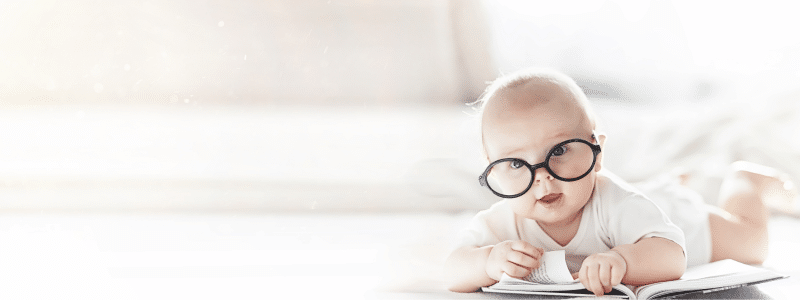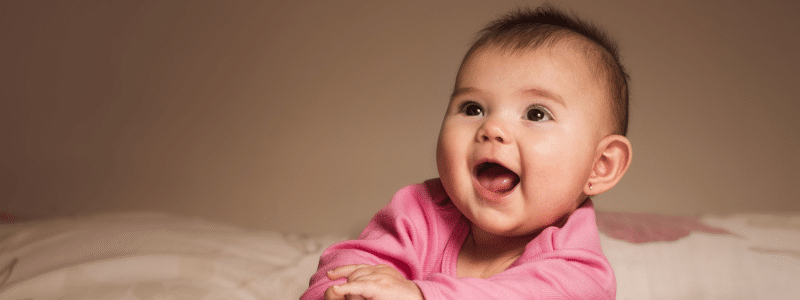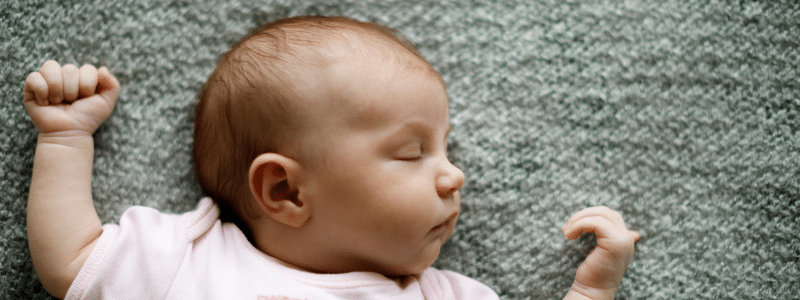
The signs of autism can show up early on in life, even in infants. That said, a proper diagnosis can only be done after an individual’s second birthday. In this blog on the signs of autism in newborns, we’ll look at the following:
- Can you detect autism in newborns?
- Do newborns with autism cry more?
- Do newborns with autism smile?
- Do babies with autism sleep well?
- Should a baby be making eye contact?
Can You Detect Autism In Newborns?
Children 12 months or younger may show signs of autism. That said, healthcare professionals will typically wait until a child is at least 24 months of age to give a reliable, early diagnosis, according to the Centers for Disease Control and Prevention (CDC). In some cases, people with autism may not be diagnosed until adulthood.
Even with a reliable diagnosis requiring a child to be two years old or older, there are still early signs of autism in babies that you can note. These early signs can be used as motivators to have your child tested when they’re older.
Many symptoms of autism spectrum disorder (ASD) aren’t observable until an individual has reached certain developmental milestones, such as those associated with language skills, social skills, or not reacting to their name.
Key Signs To Look For
- Lack of eye contact or joint attention
- Lack of facial expressions
- Reacting in unexpected ways to facial expressions
- Difficulty following objects with eyes
- Not smiling in social situations
- Difficulty sleeping (a few studies point to sleep problems being associated with autism)
- Not responding to loud sounds
- Not reacting to their name
Do Newborns With Autism Cry More?

Studies and research suggest that autistic children have greater difficulty managing their emotions, making them more prone to crying or shifting from a temperate mood to upset. Likewise, the National Institute of Health reports that the cries of children with autism contain atypical acoustic features and patterns, with one 1960s study documenting autistic babies’ cries as being higher pitched.
Babies cry for various reasons, including the natural response to their external stimuli. However, if you’re concerned with your newborn’s crying habits, schedule an appointment with their pediatrician for early intervention.
Do Newborns With Autism Smile?
A lack of facial expressions or smiling in social settings is one of the many early indicators of autism. Babies tend to have a reflexive smile in response to you smiling at them, but in those diagnosed with autism, this isn’t always the case. Autistic children on average smile much less during their first two years of life, and ASD individuals as a whole are found to demonstrate lower levels of social smiling.
Do Babies With Autism Sleep Well?

Sleep challenges are a perfectly regular occurrence in young children. For autistic babies, research points to higher levels of irregular sleep and wake patterns. There appears to be a strong correlation between ASD and sleep-wake rhythm abnormalities. As shared by ScienceDirect, autistic children more often showed a neonatal sleep status of irritability or over-reactivity.
Some common sleep problems with autistic children include lying awake all or a majority of the night, being unable to sleep throughout the night, and waking up early in the morning.
Should A Baby Be Making Eye Contact?
Babies begin making eye contact at around six to eight weeks old. At this point, they should be primarily focused on the face of their parent or caregiver. Some babies may be inconsistent with their eye contact behavior as this skill develops. Always keep your pediatrician informed and in the loop with where your baby is at in their development.






